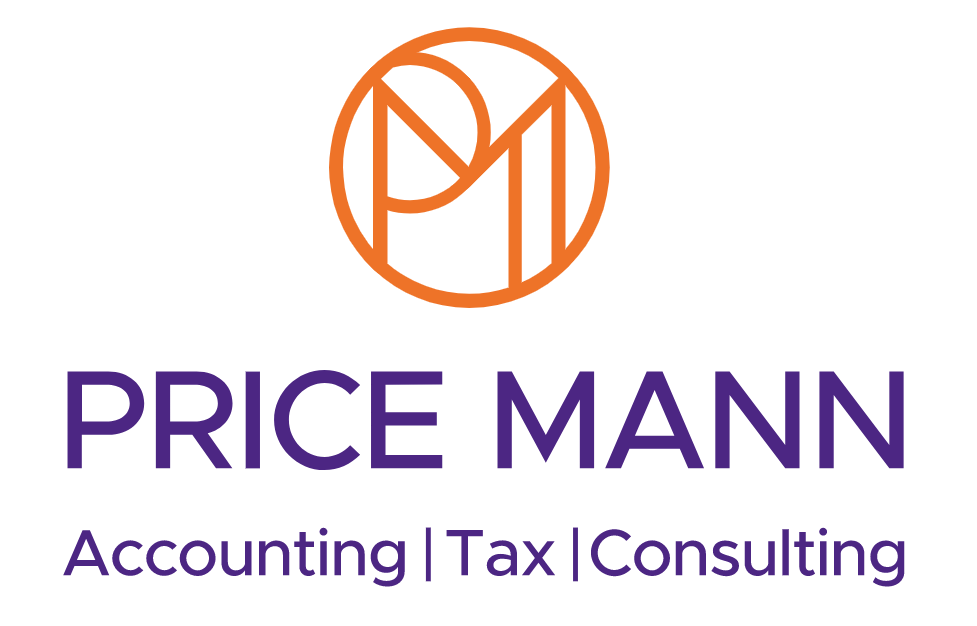Mastering business expenses
Mastering business expenses
An essential toolkit for business owners
In today’s economic landscape, where financial acumen plays a pivotal role in the sustainability and growth of any business, the importance of effectively managing business expenses cannot be overstated.
Recognising this critical need, we have developed this valuable resource for business owners.
This guide aims to simplify business expenses within the UK, shedding light on the strategies
essential for optimising financial health and ensuring tax efficiency.
We also address the practical aspects of expense management, advocating for the adoption of digital tools and accounting software. This approach facilitates more streamlined, accurate, and efficient expense tracking, which is indispensable in a fast-paced business environment.
Introduction to business expenses
Both capital allowances and allowable expenses are deductions that businesses can claim to reduce their taxable profits. However, they apply to different types of spending.
Capital allowances offer a method for gaining tax relief on tangible capital expenditure,
enabling it to be deducted from a company’s pre-tax income. This relief can be immediate or spread over several years, depending on the type of asset and applicable allowance. Typically, capital expenditure involves the acquisition of long-term business assets, such as machinery, business vehicles, and equipment.
These allowances are determined based on assets deemed capital in nature, meaning they
benefit the business over multiple years, rather than being consumed within the year of
purchase.
While it’s noted that the tax advantage for these expenditures is often recognised over several years – particularly for assets falling into the main rate or special rate pool – it’s important to highlight that most assets may qualify for either the annual investment allowance (AIA) or firstyear allowance (FYA). These allowances allow for the tax benefit to be fully realised in the first year of purchase, providing significant tax relief upfront for qualifying expenditures.
According to HMRC, allowable expenses are costs incurred wholly, exclusively, and necessarily in the running of a business. These expenses can be deducted from a firm’s revenue to calculate its taxable profit. Essentially, for an expense to be allowable, it must be incurred in the direct course of the business operations.
Some of the common categories of allowable business expenses include:
- Office costs (such as stationery or phone bills)
- Travel (including fuel, parking, train and bus fares for business trips)
- Clothing (uniforms, protective workwear, etc.)
- Staffing costs (such as employee salaries or subcontractor wages)
- Items you buy to sell on (including stock or raw materials)
- Financial costs (including insurance or bank charges)
- Costs of your business premises (such as heating and lighting bills, and business rates)
- Advertising and marketing (such as website costs or marketing fees)
- Training courses (for improving skills or professional development).
Certain expenses require careful navigation due to their complex nature:
Client entertainment: While business entertainment costs are not usually allowable expenses, understanding the specifics of these costs is essential for accurate reporting.
Home office expenses: Sole traders working from home can often claim a proportion of household expenses based on the portion of the home used for business purposes. For a limited company, these costs can only be recognised if they exceed what would otherwise have been incurred if the individual did not work from home. For example, if a sole trader believes 30% of their time using WiFi is for work, they can include 30% of that cost. For a limited company, if that WiFi cost is a fixed monthly fee, then HMRC would argue that cost would be the same whether there was some business use or not, and thus nothing can be claimed.
Personal vehicle use: If you use a vehicle for both business and personal purposes, a proportion of the vehicle’s running costs can be claimed based on the percentage of business use. These costs are recognised through the business by using HMRC’s approved mileage rates.
Key differences
Nature of expenditure:
- Capital allowances are claimed on long-term assets.
- Allowable expenses are for day-to-day operational costs.
Tax treatment:
- Capital allowances are spread over the useful life of the asset, providing tax relief over several years.
- Allowable expenses are deducted in the year they are incurred, providing immediate tax relief.
Types of costs:
- Examples of capital allowances include machinery and
- Examples of allowable expenses include rent, salaries, and utility bills.
Claiming capital allowances
To claim capital allowances, you must first identify which assets qualify. Generally, the asset must be used for business purposes, and there are specific rules regarding what constitutes qualifying expenditure. Once identified, calculate the appropriate allowance using the relevant rates and include this in your business’s tax return. It’s important to keep detailed records of the assets purchased, including invoices and dates of purchase, to support your claim.
Strategic considerations
Capital allowances can significantly reduce a company’s tax liability, making them a key consideration in financial and tax planning. Businesses should consider the timing of large purchases to maximise tax relief, especially in light of any changes to allowance rates or thresholds announced by the Government. For more complex assets or situations, it might be beneficial to seek professional advice to ensure compliance with HMRC rules and to optimise your tax position. Keeping abreast of any changes to capital allowances regulations is also crucial, as these can impact the tax efficiency of future investments.
Effective tracking and management of expenses
Accurate and efficient management of business expenses is non-negotiable. Leveraging technology through digital tools and accounting software can greatly enhance the precision and ease of tracking expenses. Here are some key strategies you can employ:
- Implement expense management software: Using digital tools and accounting software is a game-changer for businesses of all sizes. Opt for software that seamlessly integrates with your existing accounting systems. The ideal software should offer features like real-time expense tracking, categorisation, and even the ability to scan receipts. This not only simplifies record-keeping but also ensures every transaction is accurately logged and classified, facilitating easier identification of deductible expenses and capital allowances.
- Regularly review expenses: A regular review process is vital for keeping your financial records accurate and up-to-date. Schedule monthly or quarterly reviews to go over your expenses. This practice helps in identifying any discrepancies early, ensuring that all expenditures are appropriately recorded and classified. Regular reviews also provide insights into spending patterns, helping businesses make informed decisions about budgeting and cost-cutting measures.
- Educate your team: The effectiveness of expense management often hinges on the awareness and cooperation of your entire team. Educate your employees about what constitutes an allowable expense versus a capital expenditure. Clear guidelines should be provided on how to report expenses, the importance of accurate documentation, and the company’s policies on expense claims. A well-informed team is less likely to make errors in expense reporting, which can save time and reduce the risk of compliance issues.
- Hire a professional bookkeeper: For many business owners, managing expenses, alongside other responsibilities, can be overwhelming. Hiring a professional bookkeeper can alleviate this burden. Bookkeepers are skilled in managing financial records, ensuring that all transactions are recorded meticulously and comply with relevant tax laws. Their expertise can be invaluable in maximising tax relief through allowable expenses and capital allowances, while also freeing up your time to focus on core business activities.
- Keep hold of receipts: Maintaining a comprehensive record of all business expenses is fundamental. This means keeping hold of all receipts and invoices, whether they’re physical copies or electronic records. Organised documentation supports your expense claims, making it easier to substantiate these expenses during tax filing or in the event of an audit. Utilise digital tools to store and organise receipts electronically, which can simplify retrieval and review.
The benefits of online accounting
Online accounting platforms offer a transformative approach to mastering business expenses, providing businesses with the tools necessary for efficient and accurate financial management. By automating the tracking and categorisation of expenses, these digital solutions greatly reduce the risk of human error and ensure a real-time overview of financial data. This immediate access to financial information enables business owners, finance managers and accountants to make informed decisions swiftly, enhancing tax efficiency and aiding in strategic planning.
Furthermore, online accounting software simplifies compliance with HMRC regulations by streamlining the process of recording transactions, generating reports, and preparing for tax submissions. The integration of cloud-based technology facilitates seamless collaboration between team members and financial advisers, ensuring that expense management is both proactive and informed by expert insights. In essence, online accounting is a cornerstone for businesses aiming to optimise their financial health and master the complexities of managing expenses.
Compliance with HMRC guidelines
Staying compliant with HMRC’s guidelines is imperative. This involves keeping accurate records of all business expenses for at least six years, understanding the deadlines for tax returns, and being aware of the consequences of non-compliance. It’s also advisable to stay informed about any changes in tax laws and regulations that could affect business expense claims.
The bottom line
Mastering business expenses is a critical aspect of financial management for UK businesses, essential for ensuring tax efficiency and compliance. By understanding what constitutes an allowable expense, effectively tracking and managing these expenses, and navigating the complexities of tax relief and refunds, businesses can safeguard their financial health.
As your accountants, we’re here to help you control your expenses, guide you through the intricacies of tax legislation, and ensure that your financial practices are both efficient and compliant with HMRC regulations. We can use our expertise to
help you identify cost-saving opportunities, maximise your tax relief entitlements, and avoid common financial pitfalls. With a proactive approach to expense management, our aim is to not just manage your financial obligations, but to optimise them in a way that supports your business’s growth and profitability. Remember, mastering business expenses isn’t just about staying within budget; it’s about making strategic decisions that enhance your overall financial performance.













